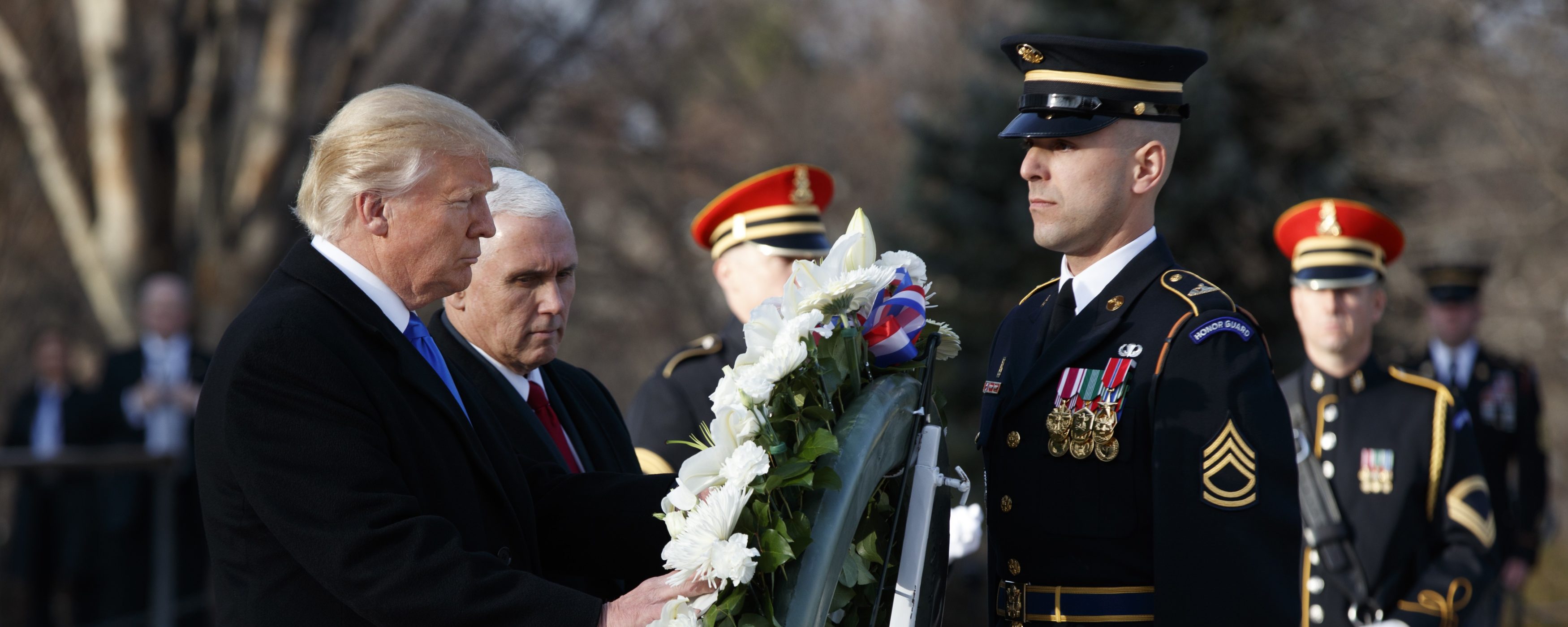
For years, the Washington National Cathedral, an Episcopal parish with a dual role as a civic gathering place, has hosted a prayer service for the newly sworn-in president. But keeping the tradition this year has caused an uproar among Episcopalians opposed to President-elect Donald Trump.
It’s the latest example of the backlash against religious leaders, artists, celebrities and other participants in events surrounding the inaugural.
The cathedral for the largely liberal denomination will host an interfaith prayer service on Saturday, the day after Trump takes office. Bishop Mariann Budde of the Episcopal Diocese of Washington wrote in a blog post that while she shared “a sense of outrage at some of the president-elect’s words and actions,” she felt an obligation to welcome all people without qualification, especially those who disagree and need to find a way to work together. That role “requires a willingness to put ourselves in places that make us uncomfortable,” Budde wrote.
Episcopalians critical of the decision were also upset to learn that the cathedral choir, drawn in part from local Episcopal schools, would sing at the inauguration before the ceremony started, and that the interfaith service the next day would not include a sermon. They saw a missed opportunity to speak out against Trump’s proposed temporary ban on Muslim immigrants and other policies, his calling Mexicans rapists and his remarks about grabbing women’s genitals. Organizers for past services have said the presidential inaugural committees have chosen the preacher, and Trump chose not to have one this year.
Budde said most Episcopalians who have contacted her about the service “are dismayed, disappointed and angry.”
The Very Rev. Randolph Hollerith, the cathedral dean, defended the decision to participate in the ceremonies. “Our willingness to pray and sing with everyone today does not mean we won’t join with others in protest tomorrow,” he said in a statement.
The emotional dispute within the church mirrors the broader fight about the morality of taking part in inaugural events this year, which has stretched across the Mormon Tabernacle Choir, a Bruce Springsteen cover band, the Radio City Rockettes and the marching band of historically black Talladega College in Alabama. Groups participating in inauguration events have said they viewed their role in part as serving the country and supporting democracy, not giving an endorsement.
Broadway star Jennifer Holliday, who backed out as a performer following protests from her gay and black fans, said she was pained by the reaction. “How could I have this much hate spewing at me, and I haven’t even done anything? I guess it’s not like those old days when political views were your own and you had freedom of speech,” she said. “We live in a different time now and a decision to go and do something for America is not so clear-cut anymore.”
Some clergy invited to offer prayers at Friday’s swearing-in have also faced criticism. New York Cardinal Timothy Dolan, who will read from Scripture at the inaugural, said he told critics he had a “sacred responsibility” to participate. “Had Mrs. Clinton won and invited me I would have gone too. It’s not the person. It’s the office, right?” Dolan said on Sirius XM’s Catholic Channel last week.
Rabbi Marvin Hier, founder of the Simon Wiesenthal Center in Los Angeles, who will offer a prayer near the end of Friday’s program, said, “I believe that all of us should pray for his great success, because his great success means our great success.”
But critics contend Trump will be a president unlike any other, because of his policies and vulgarity, so traditions surrounding his inauguration should not hold. The Rev. Gary Hall, who retired in 2015 as dean of the National Cathedral, noted that the church was envisioned as a Westminster Abbey for the U.S. It has long been the site of national events, hosting inaugural interfaith prayer services, presidential funerals and national prayers of mourning, including a ceremony with evangelist Billy Graham three days after the Sept. 11 attacks. But Trump’s “xenophobia and misogyny,” among other behavior and proposed policies, have been “outside the bounds of all mainstream norms” and the church should not appear to bless him, Hall wrote.
“We cannot use the words, symbols, and images of our faith to provide a religious gloss to an autocrat,” Hall wrote.
The head of the Episcopal Church, Presiding Bishop Michael Curry, responded to the controversy over the cathedral with a statement urging all to pray for Trump and all civic leaders.
“Prayer is not a simplistic cheer or declaration of support,” he wrote, but can also “ask God to intervene and change the course of history, to change someone’s mind or his or her heart.”
Republished with permission of The Associated Press.



